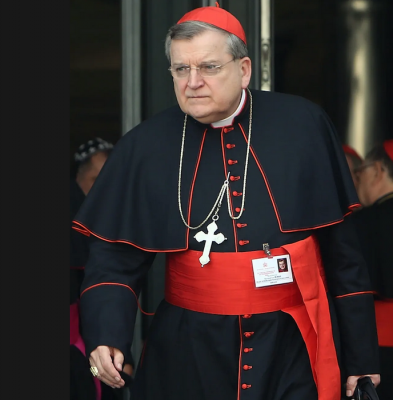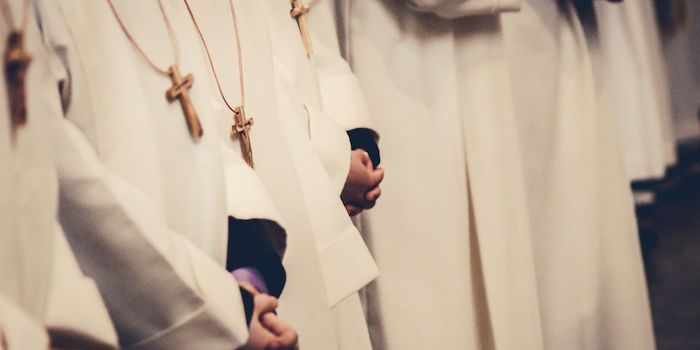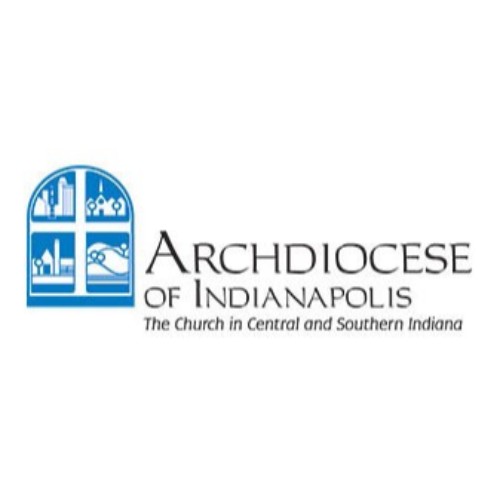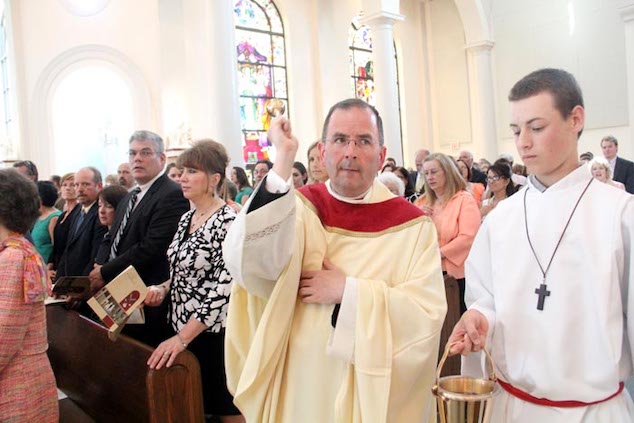Its errors run from toting a saint’s relics around Scotland to an invitation to a reactionary priest

By
A grim little vaudeville act is currently touring some of Scotland’s Catholic parishes, featuring the remains of Thérèse of Lisieux, a long-dead French nun. Thérèse died of tuberculosis at the age of 24 in 1897 and was canonised in 1925, becoming Saint Thérèse of the Child Jesus and the Holy Face. By all accounts, this young woman developed an exemplary devotion to her faith and was the author of some beautiful (if slightly ripe) spiritual tracts. I’m not sure she deserved the fate of having some of her remains bumped in and out of cars and through the hills of South Lanarkshire and Paisley for the devoted titillation of the faithful.
These relics of Saint Thérèse are considered to be “first class”, this being the ultimate seal of Vatican authentication. To be accorded this distinction, they must be parts of the bodies of the saints, such as fragments of bone, skin, blood, hair or ash. Apparently, poor dead Thérèse (or parts thereof) has been getting ferried like this throughout the Catholic world since 1994. Is there no one to call a halt to this unedifying distortion of faith? Can we not let this blameless lassie rest in peace?
In secular society, we similarly raise up those who have performed feats of heroism that inspire us to make more of ourselves or to come to the aid of those in need. Behold the Scotland national football team. Our squad hasn’t qualified for a proper international tournament for 21 years and has long been tormented by the feats of better generations. The ghosts of great Scottish managers and players still haunt Hampden Park and our modern performers seem mesmerised by their shadows as they struggle to master the basics of the game. Thus, there were more people interested in attending Scotland’s rugby international against Georgia than our footballers’ encounter with Russia on Friday night. Perhaps we could seek permission from the families of Bill Shankly, Jim Baxter and Jimmy Johnstone to exhume their bodies in the national interest.
A lock of Shankly’s hair or Baxter’s left metatarsal or a bone fragment from Jinky’s hips, which he used to swivel and pirouette away from defenders, could be secured and placed in a casket. These could then be borne aloft through the neighbourhoods that reared these great footballers for the purposes of rekindling interest among these communities for our national sport. Perhaps, too, something of the sorcery interred in their bones might escape into the feet of a passing urchin and transport him to greatness in a dark blue jersey.
When the church’s spinmeisters urge its followers to bow down in medieval veneration to the bleached fragments of dead heroes you know that political machinations lie beneath. Our secular aristocracy relies on the fecundity of the royal family or the sacrifice of its soldiers in contrived theatres of war to avert our gaze from problems nearer to home. And the Roman Catholic church, still reeling from the global crisis of clerical sex abuse, is keen to encourage supernatural devotion like this for the purposes of redirecting scrutiny of its own grievous failings.
The success of the Reformation lay in freeing people from the spiritual slavery of Rome, where the bones of saints and counterfeit fragments of the Holy Cross had become an industry. The profits from this paid for the ruinous and brutal Crusades (and the beginning of Islamophobia).
The reformers offered a purer and less unequal route to heaven and the mercy of God, unencumbered by profiteering, exploitation and superstition. It wasn’t just a theological revolution, but a temporal one, which seemed to say that you didn’t need to wait until you entered paradise to experience equality and fairness.

While Saint Thérèse’s relics continue on their ghostly tour up and down the hills and glens, the visit to Scotland takes place of the American cardinal Raymond Burke, perhaps the most powerful Catholic churchman after Pope Francis. Burke, who has long viewed the current pope’s relaxed and compassionate views on human sexuality and the environment with deep suspicion, has become his greatest critic. He has thus become a totem for rightwing Catholic conservatives, a powerful and influential lobby, which is currently being wooed by Donald Trump and his chosen acolyte in this field, Steve Bannon. Perhaps it’s merely a coincidence that Thérèse’s posthumous visit to Scotland is occurring at the same time as Burke’s live one, but I hae ma doots.
Among the cardinal’s wide range of reactionary views is that female altar servers are a wretched sign of the increased “feminisation” of the church. “The introduction of girl servers led many boys to abandon altar service,” he has said. “Young boys don’t want to do things with girls. It’s just natural.” This is rubbish, of course. Where I grew up, if young female altar servers had been allowed there would have been a stampede among the boys to toil in the Lord’s vineyard alongside them. Burke also views any form of gay relationships as “evil” and has encouraged Catholics not to expose their children to close relatives who are actively gay. He’s had less to say about why the God he purports to serve and who does not make mistakes created, in His wisdom, gay people.
The familiars and acolytes attending this false prophet will include a shadowy assortment of arcane organisations that seek to preserve unfettered clerical control and power by means of exclusion and unholy inquisition. Spare a thought for us Catholics at this time. Not only are we seeking to deal with Brexit in the secular world but leave this shower of ecclesiastical Blimps in the spiritual one.
Complete Article ↪HERE↩!





